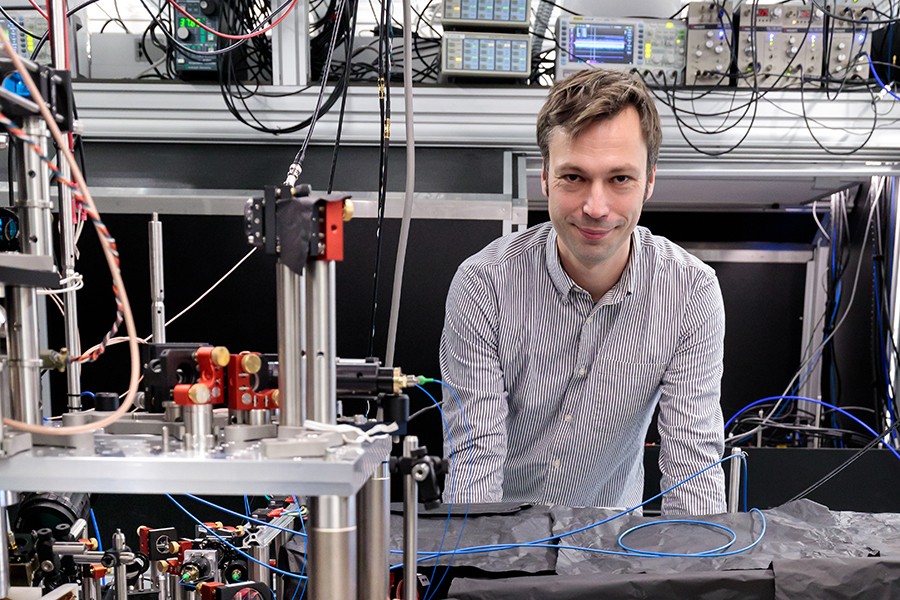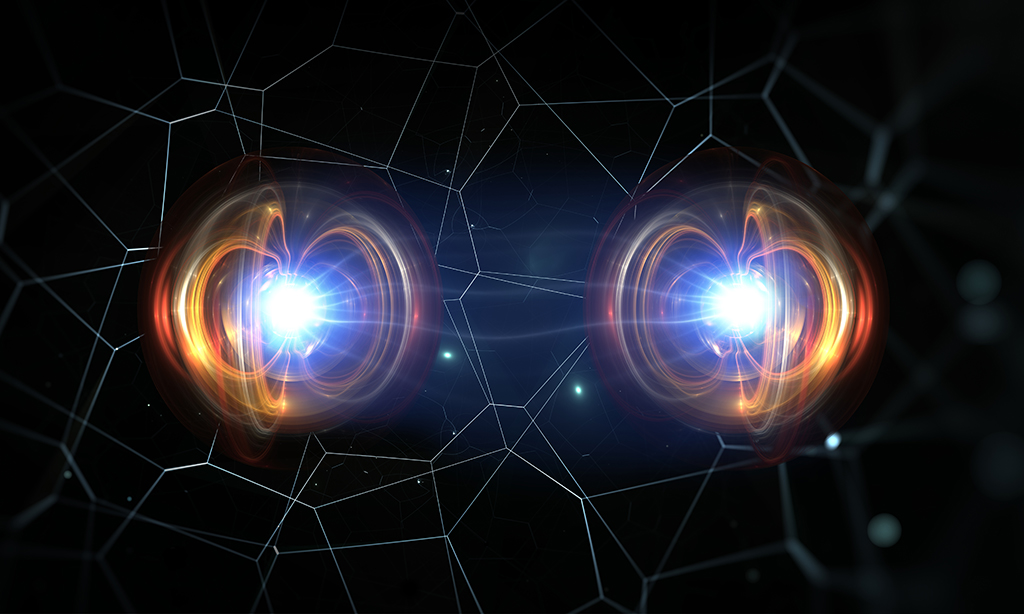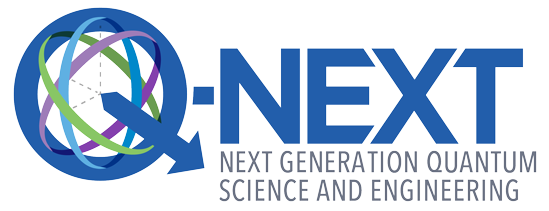qubits
-
How spectator qubits can reduce noise in quantum computers
From AZo Quantum: In a Q&A, the University of Chicago's Hannes Bernien talks about his research on noise-reduction in quantum computers through spectator qubits. Read More
-

‘Noise-cancelling’ qubits developed at UChicago to minimize errors in quantum computers
Researchers at the University of Chicago have developed a new method to constantly monitor the noise around a quantum system and adjust the qubits, in real time, to minimize error. The approach, described in "Science," relies on spectator qubits: a set of qubits embedded in the computer with the sole purpose of measuring outside noise rather than storing data. The information gathered by such spectator qubits can then be used to cancel out noise in vital data-processing qubits. Read More
-
Cross-institutional collaboration leads to new control over quantum dot qubits
From the Chicago Quantum Exchange: Researchers at the University of Wisconsin–Madison, HRL Laboratories, and University of New South Wales collaborate to better control silicon quantum dot qubits, allowing for higher-quality fabrication and use in wider applications. Read More
-
Versatile neutral atoms emerge as an intriguing quantum computing platform
From Physics Today: The University of Wisconsin–Madison's Mark Saffman report the first demonstrations of multistep quantum algorithms in arrays of rubidium atoms. Read More
-
Shielding qubits with chemistry
From APS Physics: Q-NEXT researchers have identified a way of manipulating the spin states of molecular qubits by placing them in an asymmetric chemical environment. The resulting spin states are more stable against noise from fluctuating magnetic fields than those in symmetric environments. Read More
-
For Danna Freedman, an impasse is an invitation
From MIT News: Q-NEXT collaborator Danna Friedman of MIT embraces the most challenging moments of her work to design molecules for quantum information science. Read More
-

A one-stop shop for quantum sensing materials
Researchers have created extremely thin membranes of pure diamond in which carbon atoms are replaced nitrogen. These defects connect to neighboring atomic vacancies,creating unusual quantum systems for storing and processing quantum information. Read More
-
Turning a million-qubit quantum computing dream into reality
From The Next Platform: Earlier this year, Intel announced that it had successfully fabricated more than 10,000 arrays, each with three to 55 quantum dots, on a 300-millimeter wafer with a yield higher than 95%. Q-NEXT collaborator James Clarke, director of quantum hardware at Intel, says the feat was made possible thanks to the fact that Intel, unlike most other companies pursuing quantum, runs its own fabs, which the company also used to manufacture the control logic needed that allows such a high density of qubits. Read More
-
Frozen neon invention jolts quantum computer race
From IEEE Spectrum: New findings from Argonne National Laboratory and the University of Chicago suggest that electrons trapped on frozen solid neon could prove a simple yet powerful kind of qubit for use in future quantum computers. Read More
-
The quest for an ideal quantum bit
From Argonne National Laboratory: Q-NEXT collaborator David Schuster and team create a new qubit platform formed by freezing neon gas into a solid at very low temperatures, spraying electrons from a light bulb’s filament onto the solid, and trapping a single electron there. This system shows great promise to be developed into ideal building blocks for future quantum computers. Read More
In the News
See all In the News-
The best qubits for quantum computing might just be atoms
From Quanta: Mark Saffman of the University of Wisconsin–Madison and Infleqtion is featured in this comprehensive overview of neutral-atom qubit research. Read More
-
How quantum computing could help us understand the universe
From PBS NewsHour: David Awschalom appears in this piece on the next generation of computing, one that will be far more sophisticated and dependent on understanding the subatomic nature of the universe. Read More
-
PME-led research into protein-based qubits earns $2.75M Moore Foundation grant
Bolstered by a new $2.75 million grant from the Gordon & Betty Moore Foundation, a team led by University of Chicago's Peter Maurer will soon study qubits made from protein. Read More
-
Infleqtion unveils 5-year quantum computing roadmap, advancing plans to commercialize quantum at scale
From Quantum Insider: Infleqtion shares a broad business update, including the first look at its new 5-year quantum computing roadmap. The roadmap's centerpiece is Sqorpius, the next phase of Infleqtion’s quantum computing program. Read More
-
Bringing quantum entanglement to the people
From the National Science Foundation: NSF’S Quantum Leap Challenge Institute Hybrid Quantum Architectures and Networks at the University of Illinois Urbana-Champaign, a Q-NEXT partner, has created a working demonstration that brings entanglement between photons to a public setting for the first time. Read More
